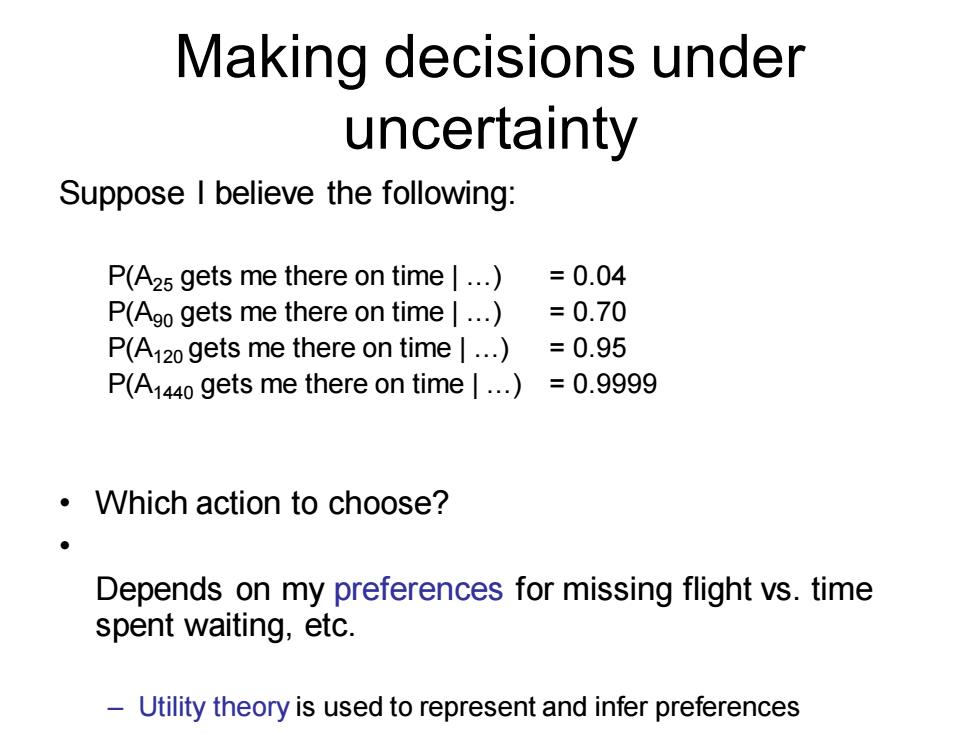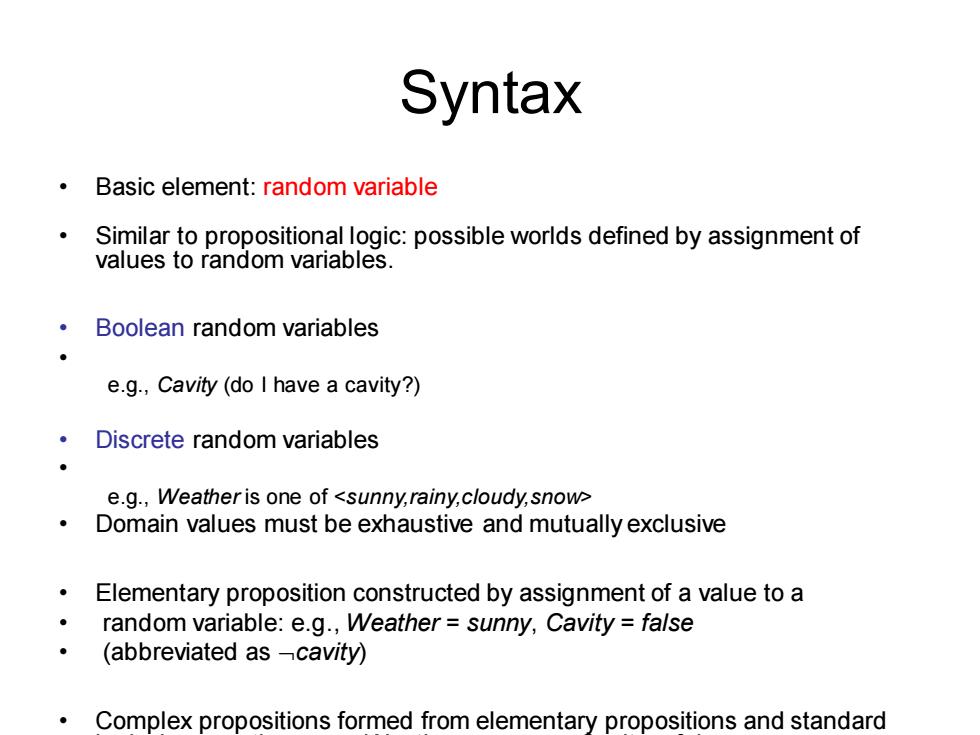
Making decisions under uncertainty Suppose I believe the following: P(A25 gets me there on time 1...) =0.04 P(Ago gets me there on time l...) =0.70 P(A120 gets me there on time |... =0.95 P(A1440 gets me there on time |... =0.9999 Which action to choose? Depends on my preferences for missing flight vs.time spent waiting,etc. Utility theory is used to represent and infer preferences
Making decisions under uncertainty Suppose I believe the following: P(A25 gets me there on time | …) = 0.04 P(A90 gets me there on time | …) = 0.70 P(A120 gets me there on time | …) = 0.95 P(A1440 gets me there on time | …) = 0.9999 • Which action to choose? • Depends on my preferences for missing flight vs. time spent waiting, etc. – Utility theory is used to represent and infer preferences –

Syntax Basic element:random variable Similar to propositional logic:possible worlds defined by assignment of values to random variables. Boolean random variables e.g.,Cavity(do I have a cavity?) Discrete random variables e.g.,Weather is one of <sunny,rainy,cloudy,snow Domain values must be exhaustive and mutually exclusive Elementary proposition constructed by assignment of a value to a random variable:e.g.,Weather sunny,Cavity false (abbreviated as -cavity) Complex propositions formed from elementary propositions and standard
Syntax • Basic element: random variable • Similar to propositional logic: possible worlds defined by assignment of values to random variables. • Boolean random variables • e.g., Cavity (do I have a cavity?) • Discrete random variables • e.g., Weather is one of <sunny,rainy,cloudy,snow> • Domain values must be exhaustive and mutually exclusive • Elementary proposition constructed by assignment of a value to a • random variable: e.g., Weather = sunny, Cavity = false • (abbreviated as cavity) • Complex propositions formed from elementary propositions and standard logical connectives e.g., Weather = sunny Cavity = false

Syntax Atomic event:A complete specification of the state of the world about which the agent is uncertain ● E.g.,if the world consists of only two Boolean variables Cavity and Toothache,then there are 4 distinct atomic events: Cavity false ^Toothache=false Cavity false Toothache true Cavity true Toothache false Cavity true Toothache true Atomic events are mutually exclusive and
Syntax • Atomic event: A complete specification of the state of the world about which the agent is uncertain • E.g., if the world consists of only two Boolean variables Cavity and Toothache, then there are 4 distinct atomic events: Cavity = false Toothache = false Cavity = false Toothache = true Cavity = true Toothache = false Cavity = true Toothache = true • Atomic events are mutually exclusive and exhaustive